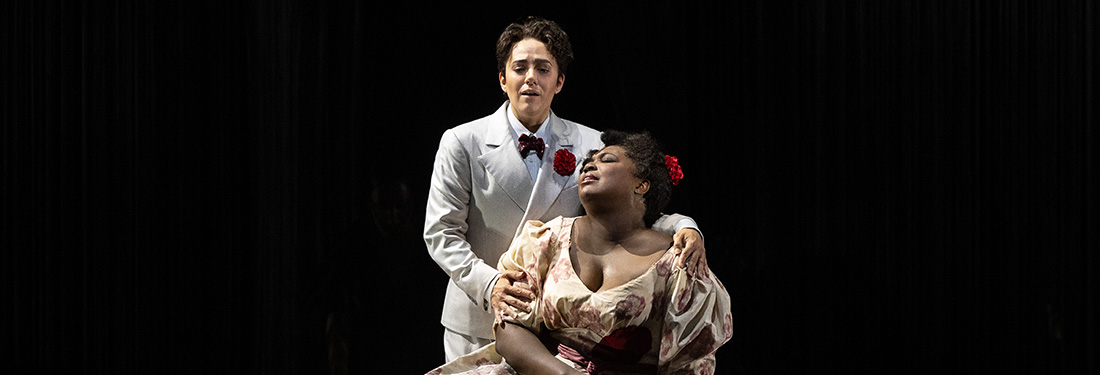

Dmitri Tcherniakov’s interpretation of Wagner’s Der Fliegende Höllander presents an engrossing character study about Senta and the Dutchman’s struggles against their insular community’s stifling conformism.
Jay Scheib’s Augmented-Reality Parsifal is a cautionary reminder that technological innovation shouldn’t absolve directors from the exacting work of deriving intelligent and fascinating theater from the source material.
In Nike Wagner’s essay “The Sounding Silence,” the German dramaturge argues that “the longing for deathrepresents the central motif” of her great-grandfather’s opera Tristan und Isolde.
At the heart of Tobias Kratzer’s incisively rollicking production of Tannhäuser lies a metanarrative that maps Wagner’s early political and artistic challenges onto its hero’s philosophical struggles.
As revivals of the composer’s sprawling works represent a daunting expense for many opera houses, exceptionally cast recordings of such concert performances serve as valuable documents that foster appreciation for his achievements.
Witnessing William Christie guide his orchestra and singers was truly one of this performance’s greatest highlights.
A work that skimps on profundity need not be devoid of entertainment value, and Madrid’s charismatic soloists and musicians more than capably deliver on this front.
And what a luxury it is to experience this musically outstanding Parsifal with a cast of this caliber!
Bay Area audiences starved for vocal fare during its opera’s winter/spring hiatus recently experienced two exceptional concerts with distinguished singing at the Davies Symphony Hall.
My sole live encounter with Seiji Ozawa coincided with his final appearances at the Metropolitan Opera, where he conducted its 2008 revival of Tchaikovsky’s Pikovaya Dama.
Leos Janácek’s rise to international prominence as a Titan of music was dovetailed by a cluster of profoundly original operas that were written during his extraordinary autumnal years.
And what a sonically fascinating and vibrant Atys it is!
Marc-Antoine Charpentier and Thomas Corneille’s Médée is a monument of the 17th century French baroque lyric tragedy.
Nina Stemme’s program guided her audience through a period of musical history that explores themes of love and mortality with texts that traverse emotional extremes.
Joyce DiDonato’s Eden immerses listeners within a centuries-spanning musical meditation that channels the majesty of our natural world.